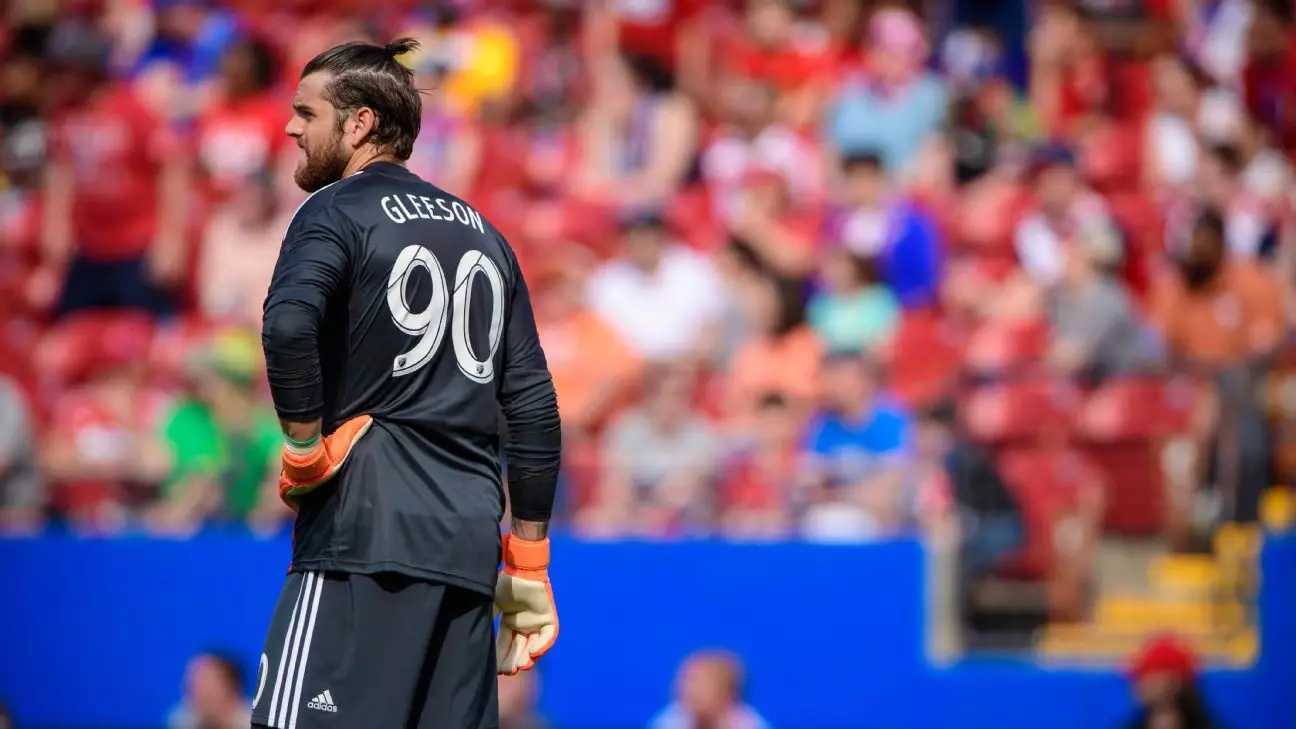In a significant ruling that has sent ripples across the sports and medical communities, a jury awarded former Portland Timbers goalkeeper Jake Gleeson over $20 million in a medical malpractice lawsuit against Dr. Richard H. Edelson, the physician responsible for his care. The legal battle, which spanned more than four years, was ignited by a surgery in 2018 that was meant to address stress fractures in both of Gleeson’s legs. Instead of regaining his athletic prowess, he faced a harrowing ordeal that would irreversibly alter the trajectory of his life. This case raises critical questions about medical accountability and the standards of care expected from professionals in the field.
Gleeson, now 34, found himself grappling not only with physical pain but also with profound emotional trauma resulting from a series of catastrophic medical mishaps. What was intended to be a straightforward procedure descended into a medical nightmare, with Gleeson subsequently contracting infections in both legs. Reports suggest that the plates inserted during his surgery may not have been sterilized properly, leading to a cascade of complications that culminated in a staggering 14 additional surgeries.
The Emotional Toll of Medical Malpractice
The emotional toll of Gleeson’s experience is palpable. “It’s been a very hard six-and-a-half years,” he shared in a candid Zoom call following the jury’s verdict. This statement underscores the profound impact that medical negligence can have on a person’s mental health, especially for an athlete who has lost their ability to perform at the highest level. His journey is not just about physical rehabilitation; it is a testament to the struggle for identity and purpose after a career-ending injury.
During testimonies, Gleeson painted a vivid picture of his struggles, not only from the incessant physical pain but also from the emotional ramifications of being forced to relinquish his professional soccer career unexpectedly. It’s a stark reminder of the precarious balance athletes must navigate between their physical capacity and their mental well-being. This situation serves to amplify the critical need for medical practitioners to adhere strictly to safety protocols, as any deviation may have far-reaching consequences.
The emotional narratives created during the trial, including support from former teammates and peers, illustrate the far-reaching implications of individual medical errors that extend beyond the patient to affect family members, friends, and colleagues. Such cases should serve as a wake-up call for medical professionals and institutions to uphold the highest standards of care.
Accountability in the Medical Profession
The jury’s verdict speaks volumes about the growing intolerance for medical negligence, especially in cases where patients place their trust in doctors to provide safe and effective care. Gleeson’s case emphasizes that patient safety must be a paramount concern, irrespective of a person’s social status, be they a professional athlete or an everyday worker. The expectation of comprehensive care does not diminish regardless of the context of the procedure.
Gleeson did not just fight for his well-being; he also advocated for all patients who have suffered under similar circumstances. His assertion that consent forms should signify a commitment to safety highlights a critical gap in the patient-doctor relationship that often goes unnoticed until it is too late. As he expressed his hopes of becoming an advocate for patient safety, it became clear that his journey had morphed from tragedy to a rallying cry for accountability in the medical sphere.
The defense’s contention that Gleeson’s complications were simply a risk inherent in surgery underscores a troubling mentality within some medical communities, suggesting that injuries sustained are merely collateral damage. This mindset must change; patients deserve to be protected from preventable complications through careful and conscientious medical practices.
Looking Ahead: A Future Transformed
With the jury’s findings affirming negligence on the part of Dr. Edelson, the future for Gleeson now includes both a financial settlement and a platform for change. He has emerged not merely as a victim but as a beacon for others who have suffered due to healthcare flaws. The hope now is that the staggering amount awarded—$20.4 million—serves as a deterrent against future negligence and encourages a reevaluation of medical practices in operating rooms across the nation.
While Dr. Edelson’s attorney has hinted at the possibility of an appeal, the magnitude of this ruling cannot be understated. It stands as a profound reminder that the medical community must prioritize patient safety, ensuring that no individual suffers the same fate as Gleeson has over these past six years. There is no room for complacency; the need for stricter adherence to medical protocols is more pressing than ever. Jake Gleeson’s story is just beginning, but it has already galvanized a conversation about medical ethics that demands ongoing attention and change.

